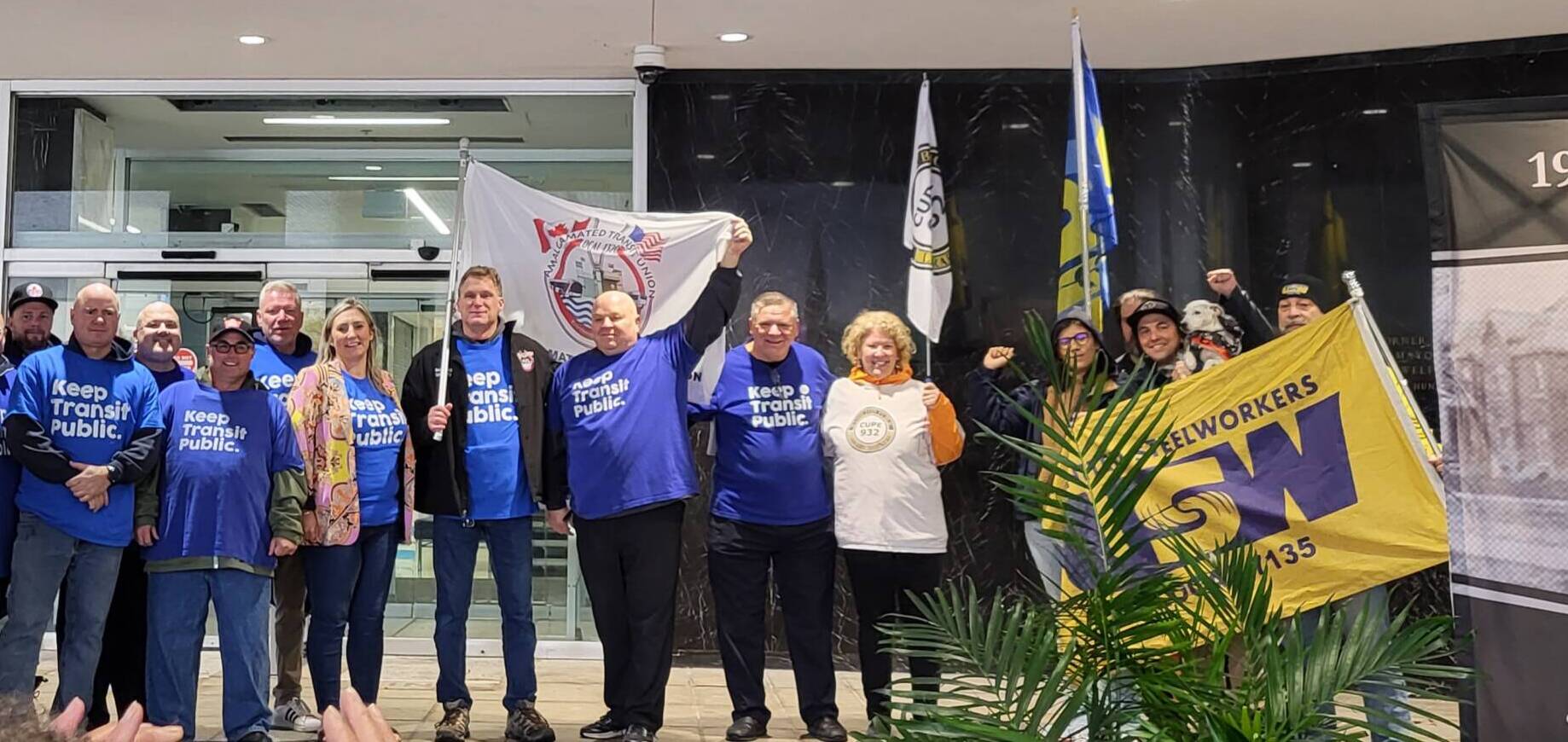On October 14th, members of the Amalgamated Transit Union (ATU) Local 107 and members of the Hamilton local community gave speeches and showed their support to keep management of the future Hamilton Light Rail Transit system (LRT), set to begin construction next spring, in the hands of the city and not a private company.
Metrolinx, the Ontario government agency in charge of managing the construction of the LRT, is currently considering handing over the maintenance and daily operation of the service to a private company. Yet Hamilton already has a local public transit agency, Hamilton Street Railway (HSR), with expertise in managing this kind of service. ATU Local 107 points to Ottawa's LRT fiasco to explain its demands.
This is because private companies have a history of cutting corners to reduce costs and increase their profits, as was seen when the City of Hamilton privatized their garbage collection services. Not only was there decrease in quality of services, but an increase in operating costs of nearly $3 million back in 2021 after the last private contract expired, according to a report from Global News.
Hamilton's LRT was first proposed in 2015 under the Liberal government of Kathleen Wynne, where she said it would cost $1 billion. "We knew that was a lie," stated Eric Tuck, President of the ATU, Local 107, in an interview with North Star. "We tried to figure out how she was doing it, and she was doing it with a public-private-partnership [P3] model. Basically, a private corporation forms the bid but then they also finance it and they go and borrow money at less stress, so it’s not on the government books; and that's all this is, is a Ponzi scheme designed to keep it off the government books and on the private books."
The project was subsequently cancelled in 2019 by the Ford government, but resurfaced with the announcement of new federal funding in 2021.
Tuck went on to explain the case of Ottawa's experience of a P3 with their LRT: "[When a multinational corporation is chosen, they] will hire five or six subcontractors. So when something goes wrong, like it has in Ottawa—they've had two derailments and they're still dealing with a bearing problem in that system— nobody has answers."
"There's no accountability, no local control, in fact, the council there couldn't get answers, because the private corporations are not beholden to give answers," he adds. "They started pointing the finger, blaming one another and you end up with a series of lawsuits and a service that does not run. The Ottawa taxpayers are still paying for that system whether it runs or not."
"We know that in the end, our fight is with Metrolinx. As long as they continue with this P3 model, taxpayers are going to be paying and they're not going to be getting what they're paying for. We believe that this fight is not just for Hamilton but for transit right across this country."
In recent years, the privatization initiatives pursued by the Ford government have raised concerns about the fate of public-sector services, particularly those upon which working-class individuals depend, such as healthcare. These policies, if implemented successfully, could potentially render vital services less accessible to a substantial portion of the working-class population due to heightened usage costs for services that were traditionally publicly funded.
"Anytime you have a bidding service where private companies are bidding on public services, just like we did with the Greenbelt fiasco, it leaves the door open for that kind of influence. I'm not trying to draw a direct connection, but at the end of the day if the private corporations have the opportunity to get their hands into the public purse, they will do it every time. That's why I say that P3's are about picking the public purse."


